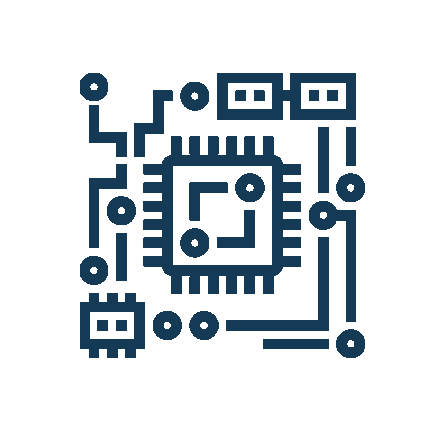
When manufacturing printed circuity boards (PCBs), you may require more than one plating solution. The most obvious would be for the various connectors, which is often done in gold or silver to improve conductivity. However, most circuit boards also require a dedicated PCB surface coating. This is applied between the bare PCB itself and any component parts. Its purpose is twofold: to protect any exposed copper circuitry; and to improve solderability.
There are several PCB finishes available but, here at Kara Plating, we specialise in OSP plating.
What Is OSP Plating?

OSP (or Organic Solderability Preservative, to give it its full name) is a water-based surface coating, typically used to finish copper pads. It selectively bonds to a copper substrate, protecting the pad prior to soldering. As the name implies, OSP is entirely organic, making it an environmentally-friendly coating material.
Benefits of OSP Plating

Organic Solderability Preservative offers several advantages over the other PCB surface coatings available. Here is just a few of them:
Environmentally Friendly

Being an entirely organic material, our OSP coatings are kind to the environment, containing no lead or other toxic contaminants. This is an important consideration for many of our customers who are looking to keep their green credentials intact.
Flat surface

OSP plating produces a neat, even surface, with is essential when coating PCBs so that it does not interfere with the conduction of electricity.
Simple process

As we will detail below, the OSP plating system includes a number of separate steps, interspersed with various washes and rinses. However, that aside, the technique itself is a simple one, requiring only a single application of the material in liquid form.
Reworkable PCBs

Unlike some PCB surface finishes, OSP plating can be easily repaired and reworked by a second application of the solution. This means that PCBs can be repurposed rather than having to start from scratch with a fresh board.
Good for SMT assembly

OSP is good choice for simultaneous multithreading (SMT) assembly, as it is a lead-free material and will not interfere in the assembly of your CPU.
Low Cost

Perhaps the biggest reason for OSP’s popularity is its cost-effectiveness compared to other PCB surface finishes. As with all plating processes, this improved even more with larger orders.
The OSP Plating Process

Like many of our plating techniques, OSP plating involves several detailed steps to ensure the quality of the finished process. These are all performed by our own team of trained technicians, who bring decades of combined experience to each order that we process. This ensures that all OSP plating runs are completed to the highest possible standard.
The process involves the following steps:

1. Clean the Copper Substrate

It is important to make sure the copper contacts in your printed circuit board are clean of grease, oil, and similar substances to ensure the OSP adheres properly to its surface.

2. Etching

By dipping your PCB into an etching solution, we can create hundreds of miniscule grooves in its surface. This gives the metal greater adhesion and reduces the possibility of oxidisation on the copper substrate. This step is then followed by another rinse and then an acid rinse, for good measure.

3. OSP application

OSP is applied as a water-based solution through a fast and effective immersion process. The material dries quickly, allowing a fast turnaround time.
Should I Use OSP Plating for My Printed Circuit Boards?

While different PCB applications may require specific characteristics that OSP does not possess, we believe that it is an appropriate and effective solution for many PCB surface coating requirements. If you are unsure, feel free to speak to one of our plating experts. They will be happy to discuss your specifications in greater detail and help determine whether OSP plating is the right solution for you.


